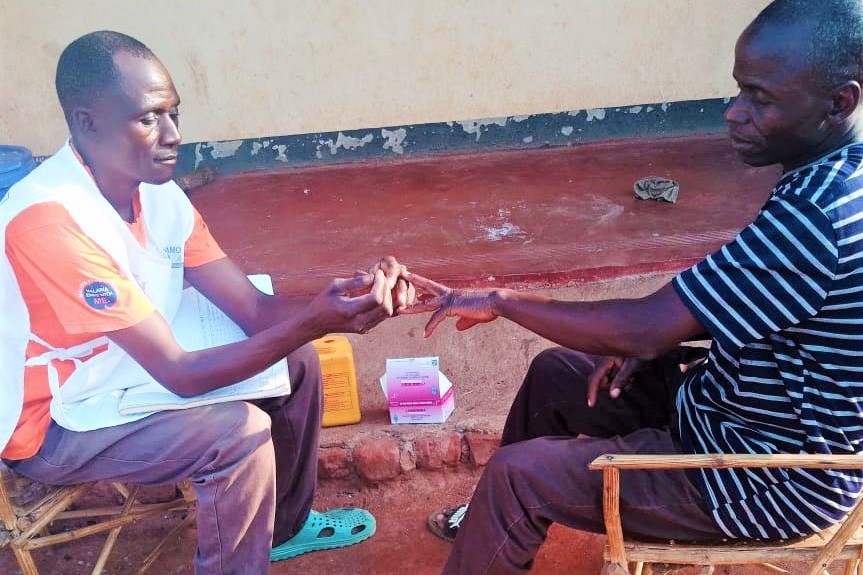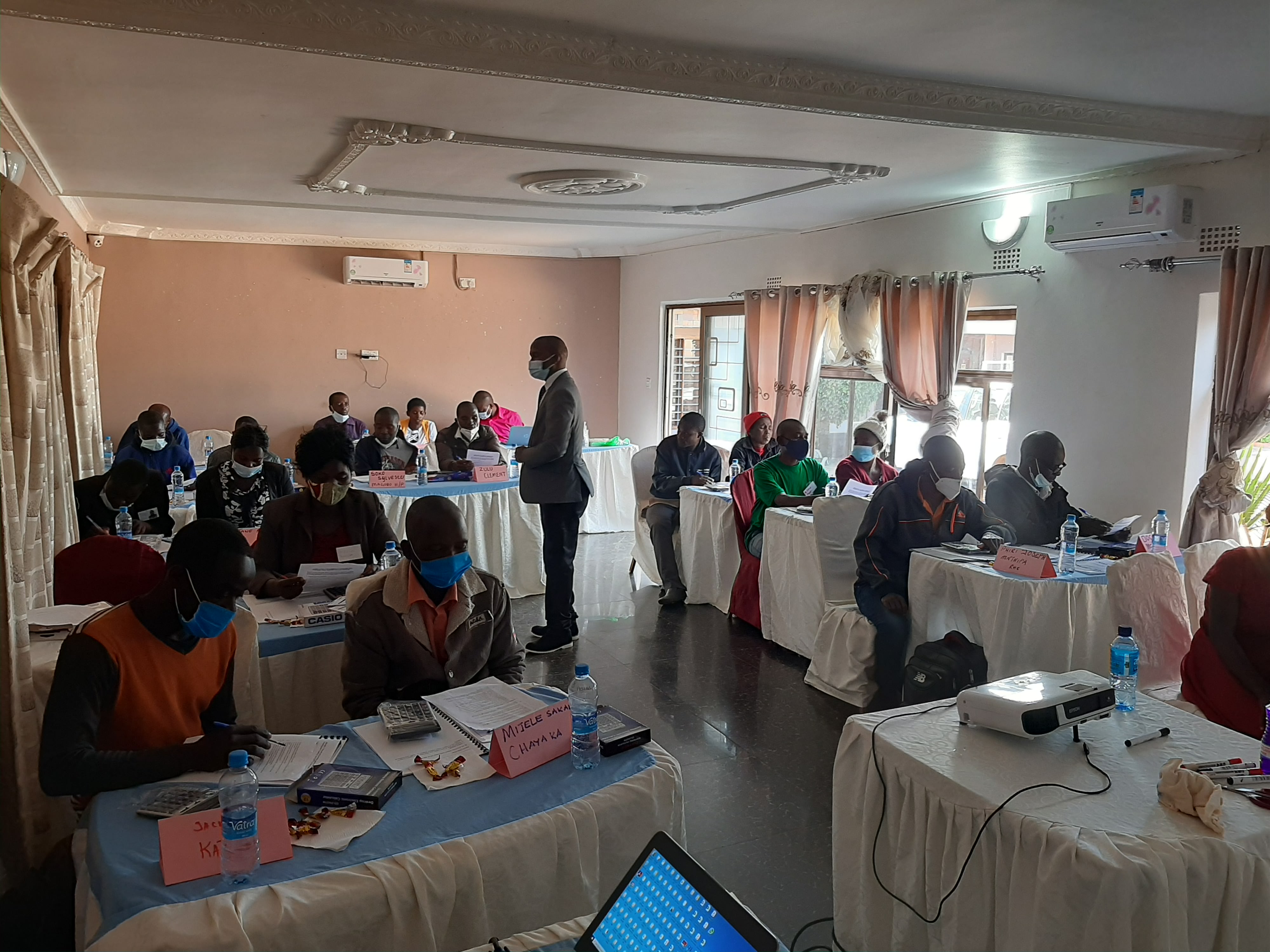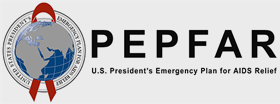
In Zambia, Community Health Workers (CHWs) are an extension of health facilities, reaching into surrounding communities to provide health education and basic services. CHWs support the national policy that every Zambian should have equity of access to cost-effective, quality healthcare services as close to their home.
CHWs are also an important part of the Zambian government’s malaria elimination strategy. They serve as malaria agents, lay counselors, treatment supporters, Safe Motherhood Action Group members, and community-based distributors. Early diagnosis and treatment of malaria help prevent local transmission of the disease and stop the progression of malaria cases from uncomplicated to complicated forms that can be fatal. According to Mr. Phiri, “The work of a CHW in malaria programs is vital as they perform important tasks such as administering malaria RDTs and giving anti-malarial medication to those who test positive. Additionally, they contribute to providing health education on other malaria interventions to the community.”
Christopher Phiri has served as a CHW for three years in Zambia’s Sinda District through the Kondwelani Rural Health Centre. “I became a CHW so that I can help communities with health-related problems and for the love I have for the communities I work for.” Mr. Phiri serves six communities, he travels about three to four kilometers each week on the bicycle he received from PAMO Plus, a project funded through the U.S. President’s Malaria Initiative (PMI) to easily reach the people in need without having to endure long hours of walking.

To support malaria elimination, CHWs access medicines, rapid diagnostic tests, and other medical supplies from their respective health facilities. However, the system for reporting stock on hand and ordering more commodities – part of the Zambia government’s integrated community case management (iCCM) program – was previously not fully standardized.
Between April and June 2022, the Global Health Supply Chain Program – Procurement and Supply Management (GHSC-PSM) project and the National Malaria Elimination Centre (NMEC) conducted the first-ever malaria-specific logistics systems training for CHWs in the malaria pre-elimination districts of Chadiza, Katete, and Sinda in Zambia’s Eastern Province. This was done to extend the supply chain system to community health workers thereby standardizing the tools which would bring about visibility and accountability for the commodities used in the iCCM program. To achieve this goal, a commodity ordering and tracking tool– (COTT) was employed, which captures crucial data such as stock on hand, consumption data, losses, and adjustments, and will improve logistics data visibility and accountability for the malaria commodities used in iCCM program.
CHWs capture consumption data daily using the COTT and, at the end of the month, share it with the health facility in charge of their affiliated health facilities, who then compile data from all CHWs to report – through the electronic logistics management information system when available – to the District Health Office. For the workshop to be conducted, GHSC-PSM developed the session materials and organized the training, while the Ministry of Health (MOH) and other partners helped develop the framework and assigned personnel to serve as trainers. The standard of training requires having two trainers from MOH and one from GHSC-PSM.

The training program trained 225 participants – including 171 CHWs to use the commodity ordering and tracking tool and to implement good storage guidelines. The training also solved the problem of limited consumption data by training CHWs to capture data daily. Consumption data is a critical component of any effective health supply chain. In this case, it refers to the information on the quantity and frequency of medicines that are used by CHWs and patients over a given period. This data is crucial for ensuring that the right products are available at the right time, in the right quantities, and at the right place.
By focusing on logistics management, the training program aimed to ensure enhanced supply chain management and data capture and visibility at the community level, which in turn will result in a more reliable supply of malaria commodities. “One of the most rewarding parts of my job is the training I've gone to” says Mr. Phiri. The most useful thing I learned at the logistic training is how to [manage and track] all the commodities which I have in the ordering and tracking tool. The training will help me in giving patients medicines that are effective because I learned how to store medicine correctly.”
The greatest challenge of implementing the program was that, although many CHWs could read the training materials in English, they needed additional explanation in their native Chewa language for both training and tests. For the future, GHSC-PSM recommended providing training for trainers who are fluent in Chewa. The project also recommended engaging more with district personnel to identify CHWs in remote or hard-to-reach areas to ensure all can participate in the CHW logistics training program.
When GHSC-PSM eventually ends, the government of Zambia will be able to sustain the program because the MOH trainers will train other CHWs and health workers. The trained CHWs and health workers will then pass on knowledge to their peers through mentoring to help them develop the skills they need to be effective in their roles including sharing experiences, providing feedback, and answering questions.


